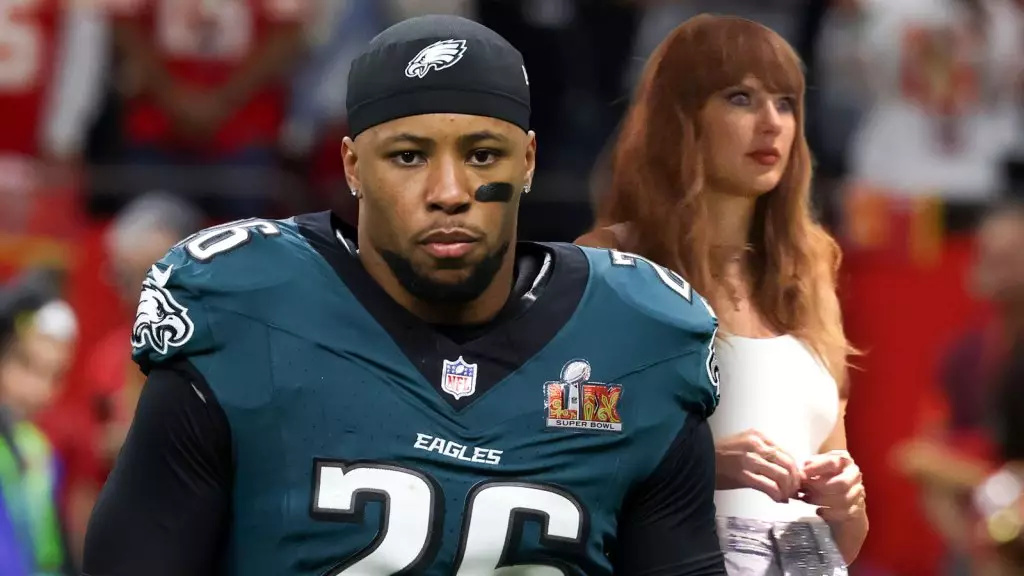The Philadelphia Eagles are no mere football team—they embody a passionate culture that extends far beyond the gridiron. However, this fervor took an interesting turn during the latest Super Bowl when pop icon Taylor Swift found herself subjected to boos from the audience. Running back Saquon Barkley felt compelled to step in and defend Swift during a segment on The Howard Stern Show, underscoring the growing entanglement of music and sports and revealing the unexpected dynamics at play.
Barkley’s remarks offer a poignant insight into the evolving relationship between celebrities and sporting events. Swift, known for her broad influence, was attending the game to support Kansas City Chiefs’ tight end Travis Kelce, yet her presence was met with derision from some fans. Barkley’s bewilderment at this reaction highlights a crucial aspect of modern sporting culture: the significant role pop culture figures play in enhancing the game’s appeal. By stating that Swift “made the game bigger,” Barkley signifies a shift in the perception whereby athletes and celebrities can jointly elevate the fans’ experience and the sport’s reach. This interconnectivity illustrates a mutual benefit but also poses questions about the expectations placed on both celebrities and athletes.
While Barkley defended Swift, former President Donald Trump took a different approach, leveraging the moment for his own agenda. Trump’s criticism of Swift’s reception at the Super Bowl feeds into the ongoing culture wars in America, where sports, politics, and entertainment collide. In this instance, Trump’s commentary not only reveals the sharp partisan lines drawn in contemporary society but also emphasizes the extent to which celebrities can become politicized figures. The former president’s sarcastic remarks ably illustrate how easily a crowd’s sentiment can shift and how rapidly celebrities can become scapegoats in the cacophony of public opinion.
Taylor Swift’s outsized influence extends into the NFL’s strategy of broadening its appeal internationally, as Barkley noted. The NFL’s forays into markets like Brazil and Mexico exemplify efforts to tap into new fanbases. Swift’s association with the league not only embodies a blend of sports and music but can also serve as a potential catalyst for attracting younger, more diverse audiences to both the NFL and the sport of football itself. The intersection of these worlds raises the stakes—celebrities like Swift are now essential to the NFL’s narrative, and their presence must be carefully managed.
The incident during the Super Bowl encapsulates the complex dance between sports, celebrity culture, and public perception. Saquon Barkley’s defense of Taylor Swift underlines a burgeoning awareness amongst athletes about their role in a larger cultural conversation, while reactions from others, such as Trump, exemplify a schism within public sentiment. As the worlds of sports and entertainment continue to intertwine, handling celebrity involvement—and the often unpredictable public reaction—will be a critical mission for teams, leagues, and the stars themselves. The question remains: how will the NFL and its players navigate this increasingly complicated landscape?

